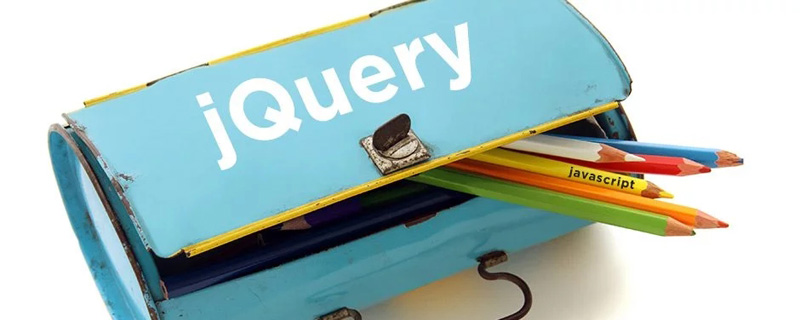For example, when viewing a large amount of information, it will be used when using multi-window frameworks on web pages. Nowadays, there are quite a lot of jquery-based Tab controls on the Internet. The idtabs I have used before is relatively simple and practical, and it is also more flexible. But for complex situations, more coding is needed, which is too simple. There is also the tab control in jquery UI (never used it, I am not very interested in jquery ui), and the tab control in easyui, which has been a bit popular recently, was first seen on javaeye , the interface is quite beautiful, because it has not been open sourced before, so I have not followed up (it seems that it has been open sourced recently. I downloaded it a few days ago and took a look. The coding style is a bit like prototype, and I can’t see the shadow of jquery. I don’t know why it is called jquery easyui haha) , because I didn’t study it in depth, and it’s not easy to make other evaluations). Having said that, let’s go back to the topic. For various reasons, we have to think about developing one ourselves. So here is this article, let’s take a look at the effect first.
The picture below is the rendering of a single web page multi-window frame
The picture below is a screenshot of the calling example provided at the end of the article.
You can see the effect of using ExtJs. In fact, CSS is basically a direct copy of it. I think it looks very good. Of course, when it comes to actual use, everyone can look it their own way
First, let’s start with HTML
Note: My idea of control first is always to determine the HTML structure first, then the style, and finally the event methods implemented by js.
In fact, looking at the picture, we can basically confirm that the tab control mainly has two parts of HTML. One is the header, which is used to place the tab tab; the other is the body, which is the container for the content. Then there are two Div containers. The tab control is divided into two parts: header and body.
The header part contains multiple tabs, so it is easy to think of the cooperation of ul li. Let’s take a look at the actual html structure in the header
By passing li as a tab, the first a is the close button, and the second a is the actual content, the background image settings in the left and right are achieved through nested tags (this approach is more common). Of course, to achieve good results, we still need CSS support. Must have some knowledge of CSS.
The structure of the Body is simpler, just a div nested within a div.
Second CSS Stylesheet
Because CSS is copied from EXTJS, I won’t introduce it in detail. You can see the actual code in the code download. If you have any questions, you can communicate
Third: Start writing JS
The old rule is to start with a complete JS code, which is about 500 lines of code. In fact, I am more diligent in changing lines, and the actual amount of code is actually relatively small.
; (function ($) {
$.fn.tabpanel =function(option){
var dfop ={
items:[], //选项卡数据项 {id,text,classes,disabled,closeable,content,url,cuscall,onactive}
width:500,
height:400,
scrollwidth:100,//如果存在滚动条,点击按钮次每次滚动的距离
autoscroll:true //当选项卡宽度大于容器时自动添加滚动按钮
};
var headerheight=28;
$.extend(dfop, option);
var me =$(this).addClass("x-tab-panel").width(dfop.width);
innerwidth = dfop.width-2;
//构建Tab的Html
var tcs= dfop.autoscroll?"x-tab-scrolling-top":"";
var header = $("");
var stripwrap = $("");
var scrollerright = $("");
var scrollerleft = $("");
var ulwrap = $("
var stripspacer = $("");
var litemp =[];
for(var i=0,l=dfop.items.length; i
var item =dfop.items[i];
builditemlihtml(item,litemp);
}
litemp.push("
ulwrap.html(litemp.join(""));
litemp =null;
stripwrap.append(ulwrap);
if(dfop.autoscroll)
{
header.append(scrollerright).append(scrollerleft);
}
header.append(stripwrap).append(stripspacer);
var bodyheight=dfop.height-headerheight;
var bodywrap = $("");
var body = $("").css({width:innerwidth,height:bodyheight});
var bodytemp=[];
for(var i=0,l=dfop.items.length; i
builditembodyhtml(item,bodytemp);
}
body.html(bodytemp.join("")).appendTo(bodywrap);
me.append(header).append(bodywrap);
initevents();
function builditemlihtml(item,parray)
{
parray.push("
parray.push("");
parray.push("");
parray.push("",item.text,"");
parray.push("
}
function builditembodyhtml(item,parray)
{
parray.push("");
}
function initevents()
{
//reset scoller
resetscoller();
scollerclick();
ulwrap.find("li:not(.x-tab-edge)").each(function(e){
inititemevents(this);
});
}
function inititemevents(liitem)
{
liswaphover.call(liitem);
liclick.call(liitem);
closeitemclick.call(liitem);
}
function scollerclick()
{
if(dfop.autoscroll)
{
scrollerleft.click(function(e){scolling("left")});
scrollerright.click(function(e){scolling("right")});
}
}
function resetscoller()
{
if(dfop.autoscroll)
{
var edge = ulwrap.find("li.x-tab-edge");
var eleft =edge.position().left;
var sleft = stripwrap.attr("scrollLeft");
if( sleft eleft>innerwidth )
{
header.addClass("x-tab-scrolling");
scrollerleft.css("visibility","visible");
scrollerright.css("visibility","visible");
if(sleft>0)
{
scrollerleft.removeClass("x-tab-scroller-left-disabled");
}
else{
scrollerleft.addClass("x-tab-scroller-left-disabled");
}
if(eleft>innerwidth)
{
scrollerright.removeClass("x-tab-scroller-right-disabled");
}
else{
scrollerright.addClass("x-tab-scroller-right-disabled");
}
dfop.showscrollnow =true;
}
else
{
header.removeClass("x-tab-scrolling");
stripwrap.animate({"scrollLeft":0},"fast");
scrollerleft.css("visibility","hidden");
scrollerright.css("visibility","hidden");
dfop.showscrollnow =false;
}
}
}
//
function scolling(type,max)
{
//debugger;
if(!dfop.autoscroll || !dfop.showscrollnow)
{
return;
}
//debugger;
//var swidth = stripwrap.attr("scrollWidth");
var sleft = stripwrap.attr("scrollLeft");
var edge = ulwrap.find("li.x-tab-edge");
var eleft = edge.position().left ;
if(type=="left"){
if(scrollerleft.hasClass("x-tab-scroller-left-disabled"))
{
return;
}
if(sleft-dfop.scrollwidth-20>0)
{
sleft -=dfop.scrollwidth;
}
else{
sleft =0;
scrollerleft.addClass("x-tab-scroller-left-disabled");
}
if(scrollerright.hasClass("x-tab-scroller-right-disabled"))
{
scrollerright.removeClass("x-tab-scroller-right-disabled");
}
stripwrap.animate({"scrollLeft":sleft},"fast");
}
else{
if(scrollerright.hasClass("x-tab-scroller-right-disabled") && !max)
{
return;
}
//left ;
if(max || (eleft>innerwidth && eleft-dfop.scrollwidth-20{
//debugger;
sleft = sleft eleft-(innerwidth-38) ;
scrollerright.addClass("x-tab-scroller-right-disabled");
// sleft = eleft-innerwidth;
}
else
{
sleft =dfop.scrollwidth;
}
if(sleft>0)
{
if(scrollerleft.hasClass("x-tab-scroller-left-disabled"))
{
scrollerleft.removeClass("x-tab-scroller-left-disabled");
}
}
stripwrap.animate({"scrollLeft":sleft},"fast");
}
}
function scollingToli(liitem)
{
var sleft = stripwrap.attr("scrollLeft");
var lleft = liitem.position().left;
var lwidth = liitem.outerWidth();
var edge = ulwrap.find("li.x-tab-edge");
var eleft = edge.position().left ;
if(lleft{
sleft =(lleft-2) ;
if(sleft{
sleft=0;
scrollerleft.addClass("x-tab-scroller-left-disabled");
}
if(scrollerright.hasClass("x-tab-scroller-right-disabled"))
{
scrollerright.removeClass("x-tab-scroller-right-disabled");
}
stripwrap.animate({"scrollLeft":sleft},"fast");
}
else{
if(lleft lwidth>innerwidth-40)
{
sleft = sleft lleft lwidth -innerwidth 40; // 40 =scrollerleft and scrollerrightwidth;
if(scrollerleft.hasClass("x-tab-scroller-left-disabled"))
{
scrollerleft.removeClass("x-tab-scroller-left-disabled");
}
//滚到最后一个了,那么就要禁用right;
if(eleft-(lleft lwidth -innerwidth 40){
scrollerright.addClass("x-tab-scroller-right-disabled");
}
stripwrap.animate({"scrollLeft":sleft},"fast");
}
}
liitem.click();
}
function liswaphover()
{
$(this).hover(function(e){
if(!$(this).hasClass("x-tab-strip-disabled"))
{
$(this).addClass("x-tab-strip-over");
}
},function(e){
if(!$(this).hasClass("x-tab-strip-disabled"))
{
$(this).removeClass("x-tab-strip-over");
}
});
}
function closeitemclick()
{
if($(this).hasClass("x-tab-strip-closable"))
{
$(this).find("a.x-tab-strip-close").click(function(){
deleteitembyliid($(this).parent().attr("id"));
});
}
}
function liclick()
{
$(this).click(function(e){
var itemid = this.id.substr(7);
var curr = getactiveitem();
if( curr !=null && itemid == curr.id)
{
return;
}
var clickitem = getitembyid(itemid);
if(clickitem && clickitem.disabled)
{
return ;
}
if(curr)
{
$("#tab_li_" curr.id).removeClass("x-tab-strip-active");
$("#tab_item_" curr.id).addClass("x-hide-display");
curr.isactive =false;
}
if(clickitem)
{
$(this).addClass("x-tab-strip-active");
$("#tab_item_" clickitem.id).removeClass("x-hide-display");
if(clickitem.url)
{
var cururl = $("#tab_item_frame_" clickitem.id).attr("src");
if(cururl =="about:blank")
{
$("#tab_item_frame_" clickitem.id).attr("src",clickitem.url);
}
}
else if(clickitem.cuscall && !clickitem.cuscalled)
{
var panel = $("#tab_item_content_" clickitem.id);
var ret = clickitem.cuscall(this,clickitem,panel);
clickitem.cuscalled =true;
if(ret) //如果存在返回值,且不为空
{
clickitem.content = ret;
panel.html(ret);
}
}
clickitem.isactive =true;
if(clickitem.onactive)
{
clickitem.onactive.call(this,clickitem);
}
}
});
}
//获取当前活跃项
function getactiveitem()
{
for(var i=0,j=dfop.items.length;i
if(dfop.items[i].isactive)
{
return dfop.items[i];
break;
}
}
return null;
}
//根据ID获取Item数据
function getitembyid(id)
{
for(var i=0,j=dfop.items.length;i
if(dfop.items[i].id == id)
{
return dfop.items[i];
break;
}
}
return null;
}
function getIndexbyId(id)
{
for(var i=0,j=dfop.items.length;i
if(dfop.items[i].id == id)
{
return i;
break;
}
}
return -1;
}
//添加项
function addtabitem(item)
{
var chkitem =getitembyid(item.id);
if(!chkitem){
var isactive =item.isactive;
item.isactive =false;
var lastitem = dfop.items[dfop.items.length-1];
dfop.items.push(item);
var lastli = $("#tab_li_" lastitem.id);
var lastdiv = $("#tab_item_" lastitem.id);
var litemp =[];
var bodytemp = [];
builditemlihtml(item,litemp);
builditembodyhtml(item,bodytemp);
var liitem = $(litemp.join(""));
var bodyitem= $(bodytemp.join(""));
lastli.after(liitem);
lastdiv.after(bodyitem);
//事件
var li = $("#tab_li_" item.id);
inititemevents(li);
if(isactive)
{
li.click();
}
resetscoller();
scolling("right",true);
}
else{
alert("指定的tab项已存在!");
}
}
function openitemOrAdd(item,allowAdd)
{
var checkitem = getitembyid(item.id);
if(!checkitem && allowAdd )
{
addtabitem(item);
}
else{
var li = $("#tab_li_" item.id);
scollingToli(li);
}
}
//移除一个tab 项
function deleteitembyliid(liid)
{
var id= liid.substr(7);
$("#" liid).remove();
$("#tab_item_" id).remove();
var index = getIndexbyId(id);
if(index>=0)
{
var nextcur;
if(index {
nextcur = dfop.items[index 1];
}
else if(index>0){
nextcur = dfop.items[index-1];
}
if(nextcur)
{
$("#tab_li_" nextcur.id).click();
}
dfop.items.splice(index,1);
resetscoller();
scolling("right",true);
}
}
function resize(width,height)
{
if(width ==dfop.width && height ==dfop.height)
{
return;
}
if(width){ dfop.width=width};
if(height){ dfop.height =height;}
innerwidth = width-2;
bodyheight=dfop.height-headerheight;
me.css("width",dfop.width);
header.css("width",innerwidth);
body.css({width:innerwidth,height:bodyheight});
for(var i=0,j=dfop.items.length;i
var item =dfop.items[i];
$("#tab_item_" item.id).css({width:innerwidth});
$("#tab_item_content_" item.id).css({width:innerwidth,height:bodyheight});
}
resetscoller();
}
//设置选项卡项是否disabled
function setdisabletabitem(itemId,disabled)
{
var chitem= getitembyid(itemId);
if(!chitem || chitem.disabled ==disabled)
{
return;
}
if(disabled)
{
chitem.disabled =true;
$("#tab_item_" item.id).addClass("x-tab-strip-disabled");
}
else{
chitem.disabled =false;
$("#tab_item_" item.id).removeClass("x-tab-strip-disabled");
}
}
me[0].tab = {
addtabitem:addtabitem,
opentabitem:openitemOrAdd,
resize:resize,
setdisabletabitem:setdisabletabitem
};
};
$.fn.addtabitem =function(item)
{
if(this[0].tab)
{
return this[0].tab.addtabitem(item);
}
return false;
}
$.fn.opentabitem =function(item,orAdd)
{
if(this[0].tab)
{
return this[0].tab.opentabitem(item,orAdd);
}
return false;
}
$.fn.resizetabpanel =function(w,h)
{
if(this[0].tab)
{
return this[0].tab.resize(w,h);
}
return false;
}
$.fn.setdisabletabitem =function(itemId,disabled)
{
if(this[0].tab)
{
return this[0].tab.setdisabletabitem(itemId, disabled);
}
return false;
}
})(jQuery);
Then let’s analyze my implementation step by step. Let’s start by writing jQuery The "template" of the control. Regarding why it is written like this, please refer to the instructions in this article
; (function ($) {
$.fn.tabpanel =function(option){
};
)(jQuery);
Continue Just write the default parameters
items:[] , //Tab data item {id, text, classes, disabled, closeable, content, url, cuscall, onactive}
width:500,
height:400,
scrollwidth:100,//if There is a scroll bar, and the distance of scrolling each time the button is clicked
autoscroll:true //Automatically add a scroll button when the tab width is larger than the container
};
The default parameters are still relatively simple , I have added comments, among which the items of the item array are more troublesome, but I believe you already know most of them through the literal meaning. Let me describe it: id is the label, which must be unique, text displays the text, and classes For a specific style, such as the home page in the effect, I added an icon and implemented it through this attribute, whether disabled is disabled, whether closeable can be closed,
content, url and cuscall. Just set one of them. Yes, content is the actual content html, and url marks the content as a web page, and iframe is automatically added to the content. Cuscall is customized, that is, the content displayed is determined by the result of cuscall execution. This attribute can be used to implement asynchronous content.
onactive refers to the event triggered when the tab item is activated. It is a function that accepts item content. See demo for details.
After the parameters are set, update the default parameters through externally passed parameters:
$.extend(dfop, option);
The next step is to build the html. This part is quite long, so I won’t post the code again.
After we complete the html construction, we need to add events to the html elements, including click events of the tab, click events of the left move button, right move button, mouse hover effect events of the tab, etc.
function initevents()
{
//reset scoller
resetscoller(); //Set whether scrolling will appear by default
scollerclick(); //Click event of the scroll bar, if it exists
ulwrap.find(" li:not(.x-tab-edge)").each(function(e){
initemevents(this); //Add events to each tab
});
}
function inititemevents(liitem)
{
liswaphover.call(liitem); //The mouse hover effect of the tab
liclick.call(liitem); //The click event of the tab
closeitemclick. call(liitem); // Click the close button event
}
As for the implementation of the event, it is actually done one by one, and it is simple to defeat each one. The main tediousness is in controlling the appearance and disabling of scroll buttons. Other click events are relatively simple.
The last is the public methods, and to write some internal methods in order to expose these methods, this tabpanel is naturally relatively simple and easy to use, and at the same time scalable. You can make adjustments according to actual needs. Of course, the current functions should meet most requirements.
Finally, let’s take a look at the disclosed methods:
1: The method of dynamically adding tab items, that is, dynamically adding tab items through js. This is actually the maintenance of items data, and then Recall tabitem's output html method, and finally set an event for it separately. Simple
2: Select or add. This is also a method called through js. It is an extension of the previous method. You can activate a certain tab item through js. If the item does not exist, add the tab through parameters
3: Re- Set the size of the tabpanel, that is, reset the size of the tabpanel through js. This is called when the window size changes, which is very practical.
4: Set an item to be disabled, and set the tabitem status of a certain item to be disabled through the js method.
Finally, you can use the code to include examples of previous controls. I have provided a compressed package, but I recommend you to use SVN to get the latest code. Because sometimes I won’t post any notifications about small changes.
http://code.google.com/p/xjplugin/downloads/list
http://xiazai.jb51.net/201005/ yuanma/xjPlugin_addtabpanel.rar
 jquery实现多少秒后隐藏图片Apr 20, 2022 pm 05:33 PM
jquery实现多少秒后隐藏图片Apr 20, 2022 pm 05:33 PM实现方法:1、用“$("img").delay(毫秒数).fadeOut()”语句,delay()设置延迟秒数;2、用“setTimeout(function(){ $("img").hide(); },毫秒值);”语句,通过定时器来延迟。
 axios与jquery的区别是什么Apr 20, 2022 pm 06:18 PM
axios与jquery的区别是什么Apr 20, 2022 pm 06:18 PM区别:1、axios是一个异步请求框架,用于封装底层的XMLHttpRequest,而jquery是一个JavaScript库,只是顺便封装了dom操作;2、axios是基于承诺对象的,可以用承诺对象中的方法,而jquery不基于承诺对象。
 jquery怎么修改min-height样式Apr 20, 2022 pm 12:19 PM
jquery怎么修改min-height样式Apr 20, 2022 pm 12:19 PM修改方法:1、用css()设置新样式,语法“$(元素).css("min-height","新值")”;2、用attr(),通过设置style属性来添加新样式,语法“$(元素).attr("style","min-height:新值")”。
 jquery怎么在body中增加元素Apr 22, 2022 am 11:13 AM
jquery怎么在body中增加元素Apr 22, 2022 am 11:13 AM增加元素的方法:1、用append(),语法“$("body").append(新元素)”,可向body内部的末尾处增加元素;2、用prepend(),语法“$("body").prepend(新元素)”,可向body内部的开始处增加元素。
 jquery怎么删除div内所有子元素Apr 21, 2022 pm 07:08 PM
jquery怎么删除div内所有子元素Apr 21, 2022 pm 07:08 PM删除方法:1、用empty(),语法“$("div").empty();”,可删除所有子节点和内容;2、用children()和remove(),语法“$("div").children().remove();”,只删除子元素,不删除内容。
 jquery中apply()方法怎么用Apr 24, 2022 pm 05:35 PM
jquery中apply()方法怎么用Apr 24, 2022 pm 05:35 PM在jquery中,apply()方法用于改变this指向,使用另一个对象替换当前对象,是应用某一对象的一个方法,语法为“apply(thisobj,[argarray])”;参数argarray表示的是以数组的形式进行传递。
 jquery怎么去掉只读属性Apr 20, 2022 pm 07:55 PM
jquery怎么去掉只读属性Apr 20, 2022 pm 07:55 PM去掉方法:1、用“$(selector).removeAttr("readonly")”语句删除readonly属性;2、用“$(selector).attr("readonly",false)”将readonly属性的值设置为false。
 jquery on()有几个参数Apr 21, 2022 am 11:29 AM
jquery on()有几个参数Apr 21, 2022 am 11:29 AMon()方法有4个参数:1、第一个参数不可省略,规定要从被选元素添加的一个或多个事件或命名空间;2、第二个参数可省略,规定元素的事件处理程序;3、第三个参数可省略,规定传递到函数的额外数据;4、第四个参数可省略,规定当事件发生时运行的函数。


Hot AI Tools

Undresser.AI Undress
AI-powered app for creating realistic nude photos

AI Clothes Remover
Online AI tool for removing clothes from photos.

Undress AI Tool
Undress images for free

Clothoff.io
AI clothes remover

AI Hentai Generator
Generate AI Hentai for free.

Hot Article

Hot Tools

Atom editor mac version download
The most popular open source editor

DVWA
Damn Vulnerable Web App (DVWA) is a PHP/MySQL web application that is very vulnerable. Its main goals are to be an aid for security professionals to test their skills and tools in a legal environment, to help web developers better understand the process of securing web applications, and to help teachers/students teach/learn in a classroom environment Web application security. The goal of DVWA is to practice some of the most common web vulnerabilities through a simple and straightforward interface, with varying degrees of difficulty. Please note that this software

VSCode Windows 64-bit Download
A free and powerful IDE editor launched by Microsoft

SecLists
SecLists is the ultimate security tester's companion. It is a collection of various types of lists that are frequently used during security assessments, all in one place. SecLists helps make security testing more efficient and productive by conveniently providing all the lists a security tester might need. List types include usernames, passwords, URLs, fuzzing payloads, sensitive data patterns, web shells, and more. The tester can simply pull this repository onto a new test machine and he will have access to every type of list he needs.

SAP NetWeaver Server Adapter for Eclipse
Integrate Eclipse with SAP NetWeaver application server.








